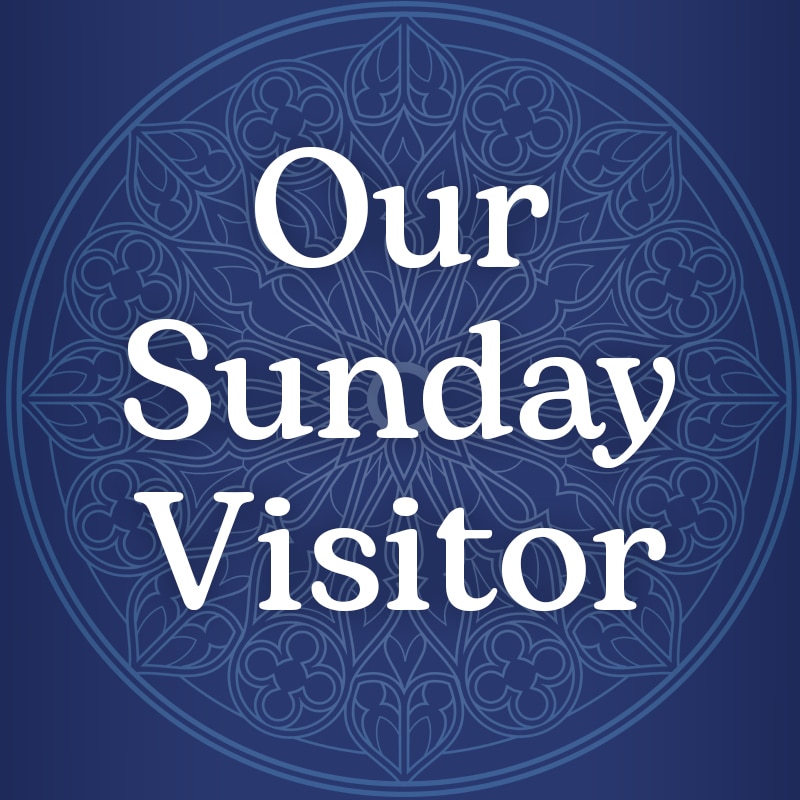Bishop Earl K. Fernandes was appointed as the 13th bishop of the Diocese of Columbus by Pope Francis in April 2022. A native of Toledo, Ohio, Bishop Fernandes is the first Indian-American to lead a U.S. diocese. He previously served in the Archdiocese of Cincinnati, where he held various roles, including dean of Mount St. Mary’s Seminary and pastor of St. Ignatius Loyola parish. Fluent in multiple languages, Bishop Fernandes is a prolific writer and speaker, with expertise in moral theology and seminary formation. His passion for the Gospel, combined with his diverse experience of service to the Church, makes him a dynamic leader dedicated to serving the faithful of Columbus.
Our Sunday Visitor: You’ve doubled the number of vocations over the past two years. Could you share the specific strategies or programs that contributed to this growth?
Bishop Earl Fernandes: When I was ordained a bishop, I announced to the Diocese of Columbus that more bishops were being ordained than priests. People chuckled, but I was being serious. It really raised awareness of the need to pray for vocations in a more profound way. At the same time, we were undergoing pastoral planning, which included parish mergers and closures. This underscored the need for more priests.
“We’ve utilized the Melchizedek Project, where young men meet monthly for prayer and discussion. This fosters fraternity and a sense of community, which helps them realize they aren’t alone in their discernment.”
“We’ve utilized the Melchizedek Project, where young men meet monthly for prayer and discussion. This fosters fraternity and a sense of community, which helps them realize they aren’t alone in their discernment.”
Our Vocation Director, Father Bill Hahn, was instrumental. He worked with younger priests who served as regional vocation coordinators to reach out across our 23-county diocese. Since not everyone can come to Columbus, these priests meet with young men regularly for discernment, helping them to establish a rhythm for prayer and discernment.
Additionally, we’ve utilized the Melchizedek Project, where young men meet monthly for prayer and discussion. This fosters fraternity and a sense of community, which helps them realize they aren’t alone in their discernment. We’ve also reinstituted Andrew Dinners, where I gather with young men, pray evening prayer, share a dinner and answer their questions about vocations. It’s a simple but impactful way to connect.
Our Sunday Visitor: How has this approach been received by the young men discerning their vocations?
Bishop Fernandes: Very well. The fraternity and regular interaction make a significant difference. We also started hosting “Quo Vadis” retreats for high school-aged boys, and they’ve been well-attended. For instance, we recently had 30 young men at a retreat at the Pontifical College Josephinum, which was very encouraging.
“These efforts … have resulted in 16 new seminarians last year and 10 this year.”
Bishop Earl K. Fernandes
We’ve made a special effort to reach out to homeschool families as well, who often feel overlooked in the vocational discernment process. By engaging them in diocesan events, we’ve planted the seed for future priests and religious. These efforts, combined with strong parish support, have resulted in 16 new seminarians last year and 10 this year.
Our Sunday Visitor: That’s incredible growth in such a short time. Has the financial strain of supporting so many seminarians been a challenge?
Bishop Fernandes: Yes, it has. The cost of supporting seminarians is significant. Last year, with 16 new seminarians, the diocese incurred about $880,000 in tuition, room and board. But we held a special collection called “Good and Growing” to raise awareness of our vocational success, and the people of God responded generously, contributing around $600,000. This was a tremendous help and shows how much people care about supporting future priests.
Our Sunday Visitor: Do you have many lay apostolates active in Columbus? How are those groups supporting the discernment process?
Bishop Fernandes: The lay apostolates are vital. In Columbus, we have several apostolates like Camp Damascus and St. Paul’s Outreach, which work with young people and help them grow in their faith. Many young people who attend Camp Damascus, for example, have powerful experiences of faith and begin to think seriously about their vocations.
We also have the Seven Sisters Apostolate, which prays for priests through Eucharistic adoration, and this has been a blessing. Additionally, lay movements, such as Communion and Liberation and Young Catholic Professionals, help young people cultivate their spirituality, even if they don’t ultimately discern a call to the priesthood or religious life.
Our Sunday Visitor: There’s often a concern that promoting vocations can become just another task for busy priests. How do you address that?
Bishop Fernandes: It’s true that priests are juggling many responsibilities, but vocations are everyone’s task. It’s not just the priests; it’s the whole parish community. Forming vocation committees in parishes or praying for vocations during a weekly holy hour are ways to involve the entire parish in promoting vocations without overburdening the priests.
We’ve also assigned chaplains — both priests and religious sisters — to our high schools, providing regular contact with students, which builds relationships and fosters discernment.
“Vocations are everyone’s task. It’s not just the priests; it’s the whole parish community.”
Bishop Earl K. Fernandes
Our Sunday Visitor: What do you think draws young people to a religious vocation today?
Bishop Fernandes: Young people today are hungry for depth and meaning. They’re drawn to the beauty, truth, and goodness found in our Catholic tradition. Rather than trying to make the faith “cool” or “hip,” we need to elevate them, challenge them to greatness and expose them to the richness of the Church’s teachings, art, music and liturgy.
They’re looking for something more than what the world offers, and when they encounter the transcendent — whether through Eucharistic adoration, beautiful liturgy or the lives of the saints — they respond. That’s what’s happening in our diocese. These young men and women want to be part of something bigger than themselves.
Our Sunday Visitor: Finally, what do you see as the biggest misconception young people have about discernment?
Bishop Fernandes: I think many young people are afraid of committing to something that seems difficult or isolating. They think, “Will I be lonely? Will I be unhappy?” But when we help them understand that answering God’s call leads to true fulfillment, they see that priesthood or religious life isn’t a burden, but a gift. It’s about trusting in God’s plan, which is always greater than our own.







